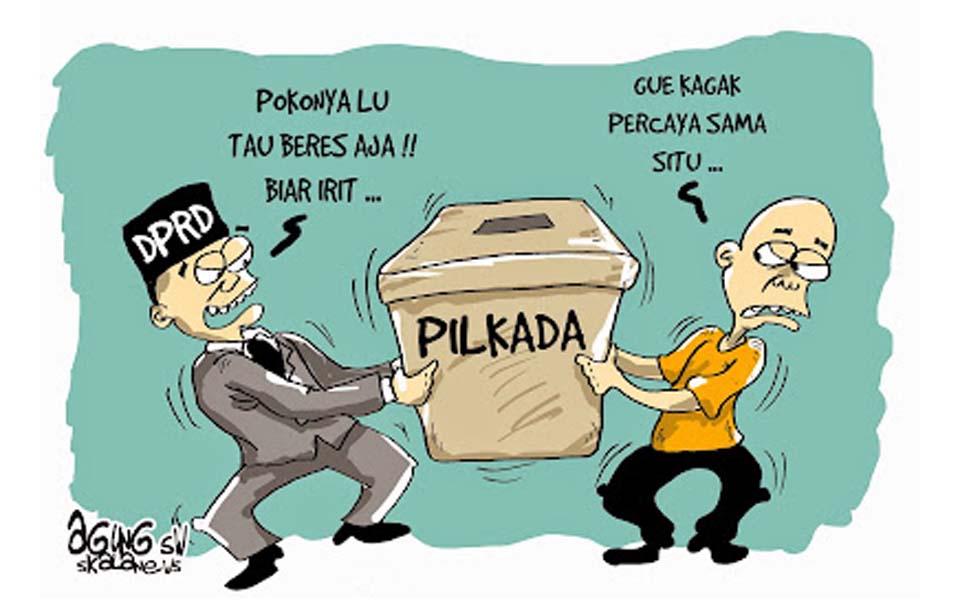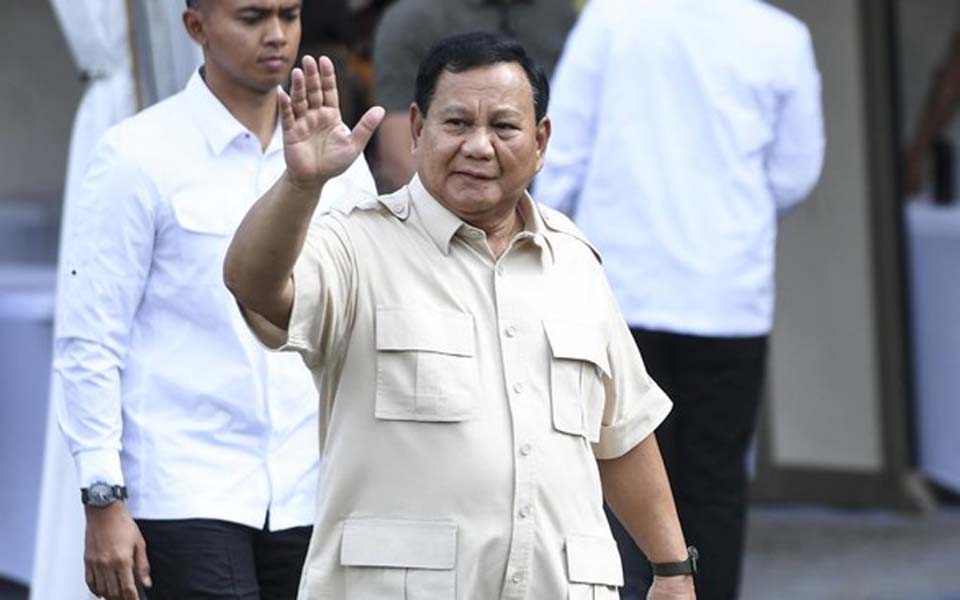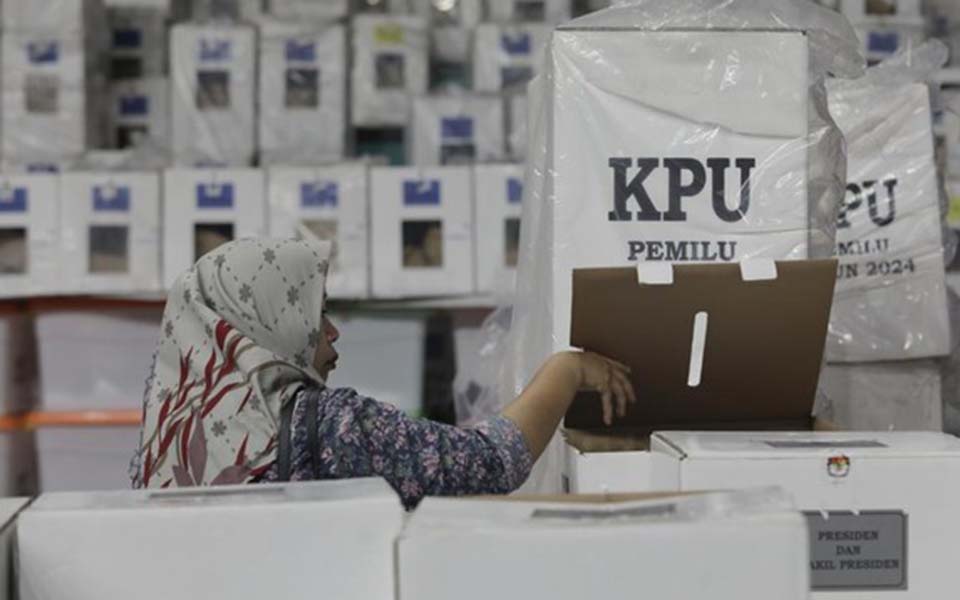Muchus Budi R., Solo – After failing to form a new political party, in the 2004 general elections ex-members of the Indonesian Communist Party (PKI) will channel their hopes through the National Awakening Party (PKB) and support Gus Dur [former President Abdurrahman Wahid] to win the presidency. The reason, Gus Dur and the PKB are considered to have fought for the reinstatement of the political rights of ex-political prisoners.
This was related [to journalists] by Rewang, a former PKI Central Committee Politburo member in Solo (Central Java) on Monday March 22. The 76-year-old man has chosen to live out his years in Solo after returning from prison in 1991.
The choice of channeling votes to the PKB continued Rewang, was because of their disappointment in [President Megawati Sukarnoputri’s] Indonesian Democratic Party of Struggle (PDI-P) and their failure to establish a new political party to channel their political hopes.
In the 1999 elections explained Rewang, ex-PKI members gave their votes to the PDI-P however according to Rewang, the PDI-P and the Megawati government have failed to build a democratic climate and have forgotten their base and their supporters. “They have just forgotten their supporters, and even people outside of them. For example, the July 27 case1 has not been touched upon, many [political] figures [from the PDI-P] have disappointed [the people]”, he said.
Disappointed in the PDI-P, in the lead up to the 2004 elections they then tried to come together to establish the Indonesian Patriotic Democratic Party (Partai Demokrat Patriotik Indonesia, PDPI) led by Payung Salenda, a former People’s Youth activist and “alumni” of Buru Island2. However their enthusiasm failed after the party they formed was not able to participate in the elections because it did not pass the National Election Commission verification process.
“[Because] we now don’t have any formal vehicle [we] will place our votes with the PKB. We hope that the PKB will be able to create a better democratic life. As for a presidential candidate, if later [he] is nominated as a presidential candidate, we will vote for Gus Dur. Up until now we know that Gus Dur himself has gone against the tide by defending us ex-political prisoners”, he said.
With regard to how many of them there are, Rewang himself was not able to say exactly. He said only that in the 1955 general elections, the PKI obtained 8 million votes. Certainly this number has now shrunk significantly because may of them have died. “Those who are still alive are also widely scattered. There are also those who are traumatised. So it is difficult to say exactly how many comrades are now still left”, he explained.
Nevertheless continued Rewang, many ex-PKI political prisoners still care about the growth of democracy in Indonesia. They have joined together in a number of groups such as the Association of Victims of the New Order (Paguyuban Korban Orde Baru, Pakorba), the Association of Mutual Friendship and Harmony (Perhimpunan Guyup Rukun), the Life Long Association (Paguyuban Panjang Umur) and so on. Rewang himself is active in the Association of Mutual Friendship and Harmony and the Life Long Association.
“Together with our friends we still often gather to discuss many different issues including the latest political and economic situation. My daily activities recently [have been to] consume a lot [of time] writing about various issues. Hopefully this can be read later by the younger generation, or at lease it can be a personal record”, said Rewang. (mar)
Notes:
1. Following weeks of protests at the Indonesian Democratic Party (PDI) headquarters in Central Jakarta by pro-Megawati PDI supporters after the Suharto regime engineered Megawati’s removal as the party’s democratically elected chairperson, on July 27, 1966, paid thugs backed by the military attacked and destroyed the PDI offices resulting in the death of as many as 50 people. Popular outrage at the attack sparked several days of mass rioting and violent clashes with police. Many had hoped that with Megawati’s ascendancy to the presidency those responsible would be held accountable however Megawati and other leading party figures have publicly distanced themselves (refusing to attend annual commemorations) from the issue. Those who were eventually brought to trial in late 2003 have all been low ranking soldiers or civilians and have either been acquitted for lack of evidence or given light sentences. None of those believed to have organised or led the attack have been brought to trial.
2. Buru Island, near Ambon, was used as a prison camp where thousands of political prisoners were held for decades by the New Order regime of former President Suharto. Prisoners were encouraged to grow crops and take part in sports and participate in activities designed to change the way alleged dissidents thought.
[Translated by James Balowski.]















